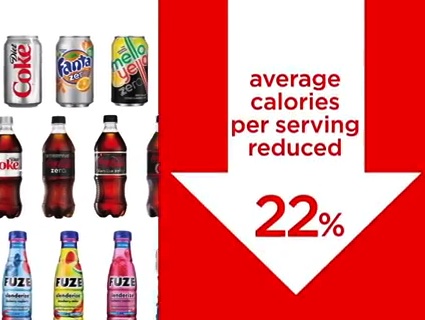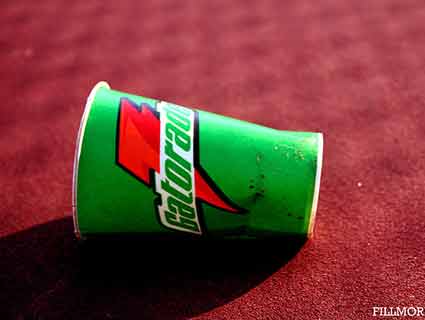Back in 2012, just ahead of the summer Olympics in London and the associated advertising blitz, the prestigious UK medical journal BMJ issued a scathing takedown of sports drinks, ably summarized for Mother Jones by health writer David Tuller. Takeaway: The colorful fluids are utterly unnecessary for restoring electrolytes after exercise, but they do contain unhealthy jolts of sugar.
Four years later, beverage giants are once again using Olympians’ beauty and grit to market these supposed elixirs—this time to children. Above, see tennis wizard Serena Williams, sprint champ Usain Bolt, and NBA star Paul George picturesquely working out with a charismatic kid in an Olympics-focused ad for Pepsi’s flagship sports drink Gatorade. And here‘s boxer Shakur Stevenson doing the same for Coca-Cola’s Powerade. Expect to see these ads and many more during the broadcast of this year’s Olympics, which open in Rio de Janeiro Friday.
And it’s easy to see why the industry is investing heavily in this massively watched sports spectacle. According to the industry tracker Beverage Marketing Corporation, US carbonated soda consumption fell 1.5 percent in 2015, the 11th straight year of decline. But sports drink volumes raced ahead by a (relatively) Usain Bolt-like 5.5 percent. In short, people are turning away from sugary carbonated drinks because they know they’re unhealthy—and turning to sports drinks, which are associated with lean, athletic bodies, but are also quite sugary.
Over at the Washington Post, Casey Seidenberg notes that the success of sports drinks is drawing new brands into the market. Honest Tea (also owned by Coca-Cola) and upstart Greater Than have rolled out “healthier sports drinks that are lower in sugar and free of artificial food colorings.” While less sugary than drinks like Gatorade, these products are equally unnecessary, Seidenberg writes; like adults, “kids and teens rarely, if ever, lose enough electrolytes during their athletic endeavors to require extra replenishment.” She adds, “Sodium is the most common electrolyte lost in sweat, yet most Americans get more than enough sodium from their diets.”
She subjected her sons and their friends to a blind taste test pitting Gatorade and Powerade against new-wave products from Honest Tea and Greater Than, as well as a glass of water and a piece of fruit, which, as she shows, provides just as much hydration as—and several times more potassium (a non-sodium electrolyte) than—most sports drinks, with zero added sugar.
“To my dismay (but not to my surprise), the kids blindly chose Powerade and Gatorade as their favorites,” she writes. “After all, these varieties are the sweetest and the most chemically engineered to cause consumers to come back for more.” As for water and fruit, she found that her experiment subjects “prefer a sports drink” but agree that the combination “satisfies when thirsty or hungry after a game.” If only influential athletes like basketball giant LeBron James would dump their sports drink deals and get behind that solution.
















